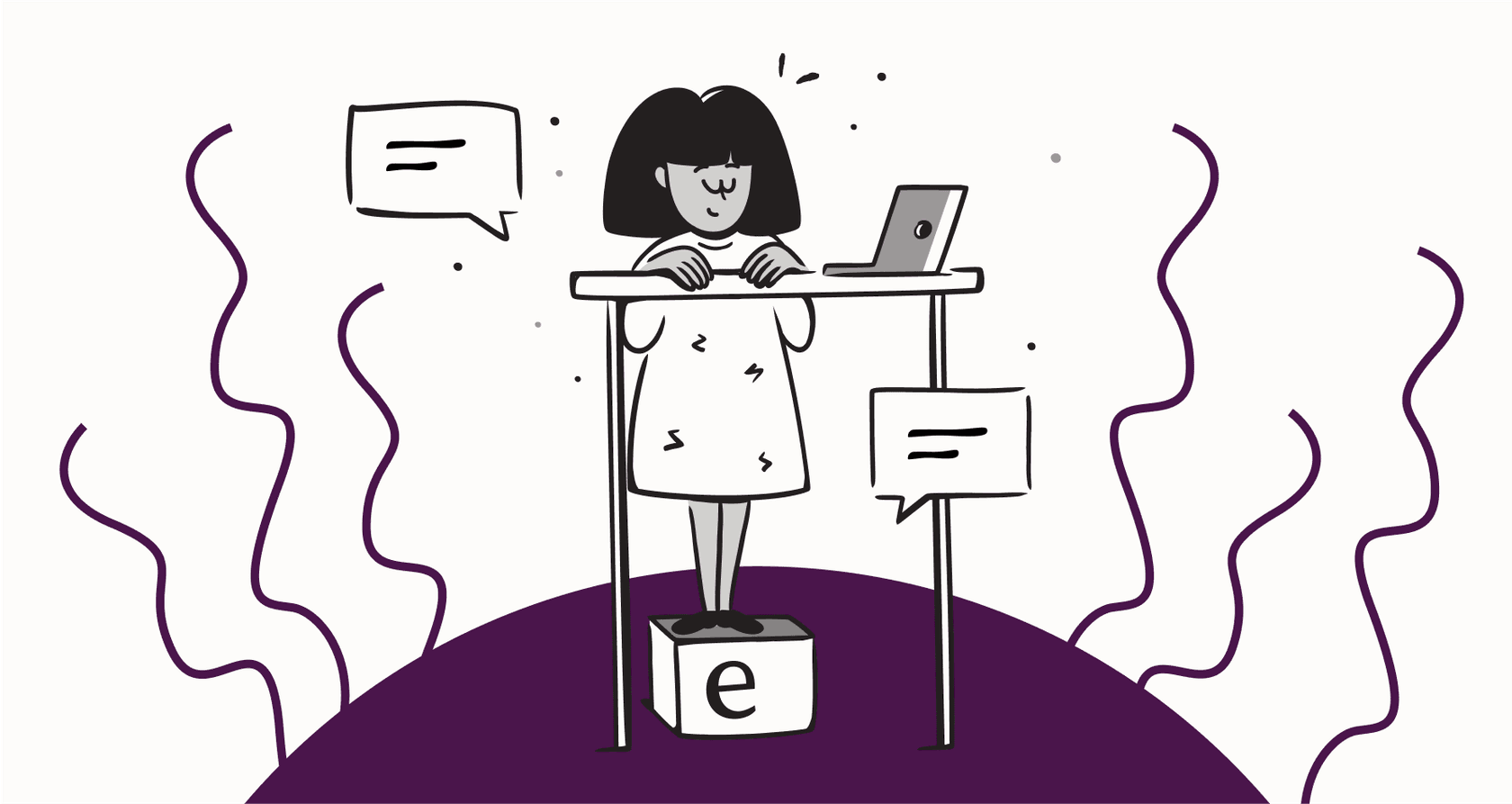The best Frontier AI alternatives for support & sales teams in 2025

Stevia Putri
Last edited September 7, 2025

If you're on a sales or support team, you know the drill: do more with less, be faster, and keep getting better. It’s no surprise that AI tools are popping up everywhere, each promising to be the magic wand for boosting performance. But this has created a whole new problem: it's hard to tell what's what.
Take the term "Frontier AI." Is it a specific tool for coaching sales reps? Or is it just a buzzword for the latest and greatest AI models? The answer is... kind of both. And that ambiguity makes it tough to figure out what you actually need.
That's why we're cutting through the noise. This article gives you a straightforward list of the best Frontier AI alternatives for 2025. We're focusing on practical tools that help both sales and support teams, so you can find the right fit for what your business is trying to accomplish.
Understanding Frontier AI before choosing Frontier AI alternatives
When you hear people talk about "Frontier AI," they usually mean one of two things.
Most of the time, they’re talking about a specific piece of software built to help Sales Development Reps (SDRs). This tool listens to live sales calls and acts like a real-time coach, offering prompts to help reps handle objections and book more demos. It’s made for call-heavy sales teams.
But "frontier" is also a general term in the AI world. It's used to describe the most powerful AI systems out there, like the models built by Google, OpenAI, and Anthropic. These big "frontier models" are the engines that can be used for all sorts of things, from automating customer support to digging through complex data.
So, whether you're looking for a direct replacement for a sales coaching tool or a broader AI solution for your entire team, the goal is the same. You need tech that helps your team work smarter, be more consistent, and get better results.
Our criteria for the best Frontier AI alternatives
We didn't just throw together a list of similar-looking products. We picked AI solutions that tackle the core problems sales and support teams face every day. To make our list, these tools had to measure up in a few key areas.
- Easy setup and integration: How fast can you actually get it working? We chose tools that don't require a team of developers or a month of onboarding calls. The best platforms should slide right into your existing helpdesk or CRM, not make you change your whole setup.
- Customizable workflows: Can you control what the AI does? We looked for platforms that let you set the rules and decide which conversations get automated. A one-size-fits-all approach rarely works.
- Knowledge connectivity: Does the AI learn from everything your company knows? A tool that only listens to call transcripts is pretty limited. We favored solutions that can connect to your entire knowledge ecosystem, help centers, internal wikis, past tickets, to give much more accurate answers.
- Real-world testing: Can you try before you buy? The best AI tools let you test their performance on your own historical data. You should be able to see the potential impact and figure out your ROI before it ever talks to a live customer.
- Transparent pricing: Is the pricing easy to understand? We looked for straightforward models. You shouldn't get hit with surprise fees every time the AI resolves a ticket or answers a question.
Comparison of the top Frontier AI alternatives in 2025
Here's a quick, at-a-glance look at how our top picks compare.
| Tool | Best For | Key Integrations | Self-Serve Setup | Transparent Pricing |
|---|---|---|---|---|
| eesel AI | All-in-one support automation & agent assistance | Zendesk, Freshdesk, Intercom, Slack, Confluence | Yes, go live in minutes | Yes, no per-resolution fees |
| Gong.io | Enterprise sales conversation intelligence | Salesforce, HubSpot, Zoom | No, requires demo | No, custom quote |
| Dialpad | Unified communications with built-in AI | Google Workspace, Salesforce, Zendesk | Yes | Yes, per user/month |
| JustCall | AI-powered cloud phone systems for call centers | HubSpot, Pipedrive, Zendesk | Yes | Yes, per user/month |
| Convin | Conversation intelligence for revenue teams | CRMs, Dialers, Video Conferencing | No, requires demo | No, custom quote |
| Chorus.ai | Data-driven sales coaching and intelligence | Salesforce, Outreach, ZoomInfo | No, requires demo | No, custom quote |
The 6 best Frontier AI alternatives for 2025
Let's dig a little deeper into each tool and figure out who it’s best for.
1. eesel AI: A top choice among Frontier AI alternatives
eesel AI is a full AI platform made for customer service and internal support teams, which makes it a great choice if you need to do more than just coach calls. It connects to the helpdesk you already use, like Zendesk or Gorgias, and brings all your knowledge sources together, past tickets, Confluence pages, Google Docs, whatever you have. This lets it automate frontline support, draft replies for your agents, and sort tickets with surprising accuracy. The best part? You don't have to wait months to see if it works; you can get it set up and running in minutes.
Pros:
- Completely self-serve: You can sign up, connect your tools, and build out your AI agents and copilots on your own, without having to talk to a salesperson.
- Brings all your knowledge together: It learns from your old conversations, help articles, and internal wikis to provide answers that are actually helpful and know the context.
- Risk-free simulation: Before you go live, you can test the AI on thousands of your past tickets to see exactly how it would have performed and get a solid ROI forecast.
- Clear pricing: The plans are based on usage, not how many tickets it resolves, so your bill is predictable and you aren't penalized for its success.
Cons:
- Its main focus is automating customer support and IT helpdesks, so it isn't a dedicated tool for live sales call coaching.
- Setting up some of the more advanced custom API actions might require a bit of technical know-how.
Pricing: Plans start at $299/month, and you can get started for free.
2. Gong.io: A direct competitor in Frontier AI alternatives
Gong.io is one of the biggest names in conversation intelligence and a direct competitor to the sales-focused version of Frontier AI. It's designed to help sales teams win more deals by recording, transcribing, and analyzing every call, meeting, and email. Managers use it to coach reps, flag deals that might be in trouble, and spot market trends from what customers are actually saying.
Pros:
- Gives you incredibly deep analytics on what’s happening in your sales conversations.
- Has a strong reputation and a feature set built specifically for sales coaching.
- Helps you figure out what your top performers are doing right so you can share those best practices with the whole team.
Cons:
- It's an enterprise tool with an enterprise price tag, which puts it out of reach for many businesses.
- The setup process is long and involved, requiring a full sales and onboarding cycle.
- It’s a tool for analysis, not automation. It won't help your support team deflect or sort tickets.
Pricing: You have to book a call with their sales team to get a custom quote.
3. Dialpad: A comprehensive Frontier AI alternative
Dialpad brings voice, video, messaging, and a contact center together in one platform. Where it fits in as an alternative is with its built-in AI. The "Ai Voice" feature can transcribe calls as they happen and provide automated summaries and action items afterward. It’s a good option for teams that want an all-in-one communication system with some useful AI features included.
Pros:
- You get a single platform for all your business communications.
- The real-time transcription and AI-powered notes are a core part of the product.
- It's generally more affordable and easier to get started with than the big enterprise-only tools.
Cons:
- Its AI is more about summarizing and transcribing, not deep automation. It won’t deflect or sort tickets for you.
- It isn't designed to connect to your library of external knowledge bases, so its context is limited to the call itself.
Pricing: Plans start around $27 per user, per month.
4. JustCall: A cloud phone system among Frontier AI alternatives
JustCall is another cloud phone system that has baked AI directly into its platform. It’s built for sales and support teams that live on the phone. The platform offers AI-powered call scoring, automatic summaries of conversations, and sentiment analysis to help managers see call quality at a glance. It's a great fit for call centers trying to streamline their operations.
Pros:
- Has a strong focus on call-centric AI features like scoring and sentiment analysis.
- It integrates with a wide range of popular CRMs and helpdesks.
- Includes a "Power Dialer" feature to help outbound teams make more calls.
Cons:
- The most useful AI features are often only available on the more expensive plans.
- Its knowledge is limited to what it hears on calls; it can't pull context from your articles and documents.
Pricing: Starts at $29 per user, per month.
5. Convin: A conversation intelligence platform among Frontier AI alternatives
Convin is a conversation intelligence platform that helps revenue teams improve by analyzing customer conversations from calls, emails, and meetings. It’s a strong choice for teams whose main goal is performance analysis and coaching. The platform automatically scores calls, points out key coaching moments for managers, and helps standardize your sales and support playbooks.
Pros:
- Users often praise its simple interface and helpful customer support.
- It generates practical coaching insights to help managers train their teams more effectively.
- Helps create a standardized process for how your team handles customer chats.
Cons:
- It can't automate actions for you, like deflecting a customer question or sorting a support ticket.
- The pricing isn't public, and you have to go through a demo, which is a barrier for teams that want to get started on their own.
Pricing: You have to book a call with their sales team to get a custom quote.
6. Chorus.ai by ZoomInfo: An enterprise choice for Frontier AI alternatives
Chorus.ai, now part of ZoomInfo, is another enterprise-level conversation intelligence platform. It works a lot like Gong, offering deep analysis of sales calls to help teams perform better. Its biggest advantage is its direct link to ZoomInfo's massive B2B database, which adds valuable company and contact info to your conversations.
Pros:
- The analytics are powered by ZoomInfo's extensive B2B data.
- Excellent for pinpointing what makes top performers successful and scaling those habits.
- Gives managers a clear view of the health of their pipeline and individual deals.
Cons:
- It comes with a hefty price tag that's too high for most small and mid-sized businesses.
- Implementation can be complicated, and it's not a self-serve product.
- Like Gong, it’s a tool for analysis, not for taking autonomous action. It won't automate your support workflows.
Pricing: You have to book a call with their sales team to get a custom quote.
This video explores the differences between frontier AI models and open-source alternatives, helping you understand the broader landscape of AI tools.
How to choose the right tool from these Frontier AI alternatives
Okay, that's a lot of options. If you're not sure where to start, here’s a simple way to think about it.
- Start with your biggest headache. What's the one problem you really need to solve? If your main goal is to coach SDRs on live calls, a conversation intelligence tool is the way to go. But if your support team is drowning in repetitive tickets, don't buy a sales coaching tool. Put out the biggest fire first.
- Pick tools that use your existing knowledge. The smartest AI doesn't just listen; it reads. Platforms that can learn from the knowledge you already have, in past support tickets, Confluence pages, and help articles, will always give more accurate and useful answers.
- Look for a risk-free way to test it. The AI market is full of big promises. Insist on a platform that offers a simulation mode. This lets you see exactly how the AI would perform on your real historical data, giving you a confident forecast of your ROI before you spend a dime. This is a massive plus for platforms like eesel AI.
- Avoid "black box" solutions. You need to be in control. The right tool will give you the power to define what the AI can and can't do, customize its tone, and choose exactly which types of tickets it handles. A platform with a flexible workflow engine will adapt to your business, not the other way around.
Frontier AI alternatives: It's about more than just call coaching
While Frontier AI and its direct competitors like Gong and Chorus are great for analyzing sales calls, that's just one piece of the puzzle. The real leap forward for customer-facing teams is using AI for smart automation and unifying all your company knowledge.
The right choice comes down to what you're trying to achieve. If you just need to analyze sales calls to coach your reps, a conversation intelligence tool will do the job. But if you want to get rid of repetitive support tasks, give your agents instant access to every bit of company knowledge, and solve customer problems faster, you need a more complete platform.
For teams ready to move from just analysis to smart, self-serve automation that works across all your knowledge sources, a tool like eesel AI is the clear way forward.
Ready to see how real automation can change your support team? Sign up for eesel AI for free or book a demo and set up your first AI agent in under 5 minutes.
Frequently asked questions
The core difference is "analysis vs. automation." Gong analyzes past conversations to give you insights for coaching, while eesel AI takes autonomous action to resolve support tickets for you. Your choice depends on whether your main goal is to coach your team or to reduce their manual workload.
Absolutely. A tool like eesel AI is built for support automation. Instead of analyzing sales calls, it connects to your helpdesk and knowledge bases to automatically resolve repetitive tickets, draft replies for agents, and deflect common questions.
Look for platforms that are "self-serve." For example, eesel AI is designed so you can sign up, connect your existing tools, and go live in minutes without needing to talk to a salesperson. This is a major contrast to enterprise tools that require a lengthy demo and onboarding process.
Tools like Dialpad and JustCall offer transparent, per-user pricing that's more accessible for smaller teams. They bundle AI features like transcription and call summaries into their communication platforms, providing good value without the enterprise price tag of tools like Gong or Chorus.
Yes, some of the best platforms offer a simulation mode. For instance, eesel AI allows you to test its performance on your own historical support tickets. This gives you a clear, data-backed forecast of your potential ROI before you ever activate the tool for live customers.
Most reputable tools list their key integrations directly on their website, often in an "integrations" section. The comparison table in this article is a good starting point, but always check the provider's site for the most up-to-date list of supported platforms.
Share this post

Article by
Stevia Putri
Stevia Putri is a marketing generalist at eesel AI, where she helps turn powerful AI tools into stories that resonate. She’s driven by curiosity, clarity, and the human side of technology.





